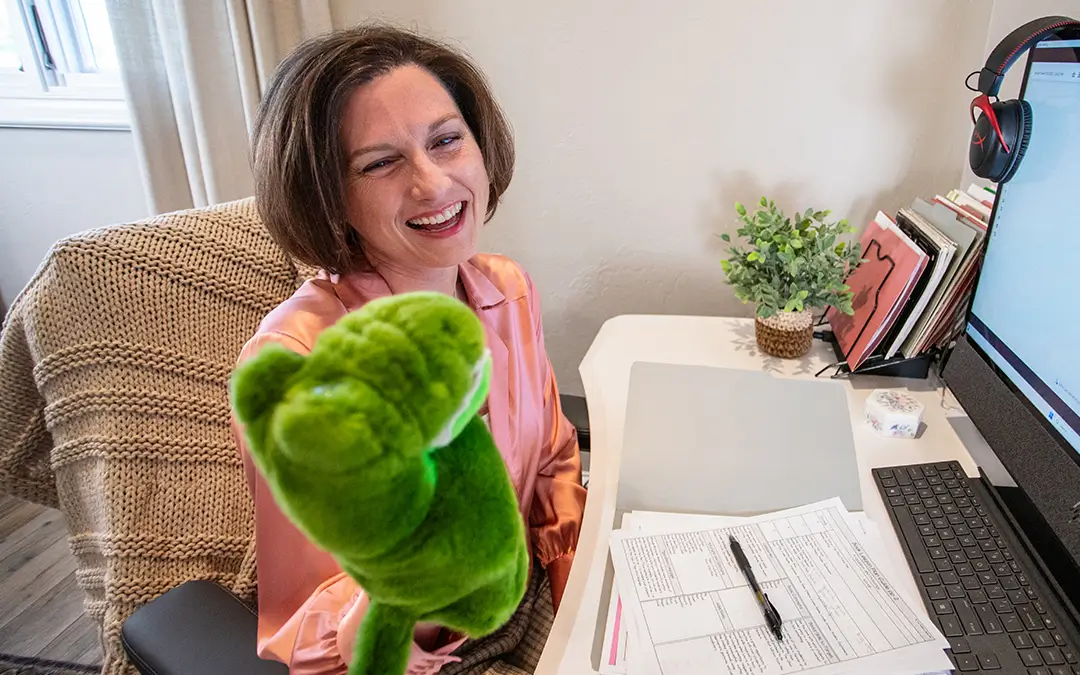If your child is having trouble with reading, spelling, or staying on track in school, it can be hard to know what to do next. You may find yourself asking, “How do I begin to figure this out?” One of the most important steps is getting a professional evaluation and finding the right place for a reliable reading disorder diagnosis OKC can make a significant difference.
Understanding Your Options for a Reading Disorder Diagnosis OKC
If you’re trying to get a clearer picture of dyslexia, there are a few ways to go about it. Some families turn to speech-language pathologists, while others go through the school or work with specialists like clinical psychologists or neuropsychologists. Each route is different, so understanding how they differ can help you make the right choice for your child.
Speech-Language Pathologists
Speech-language pathologists (SLPs) are often among the best professionals to diagnose dyslexia OKC. With a deep understanding of language development and its link to reading and writing, SLPs often focus their evaluations on key areas related to dyslexia, which can include phonological awareness, rapid naming, and language processing.
Because of their specialized knowledge, SLPs can recognize both the symptoms of dyslexia and what’s causing them. Their evaluations often offer straightforward, useful insights that help families make sense of their child’s challenges and take the next steps with confidence. While other professionals also evaluate learning difficulties, SLPs provide a more focused lens on the language foundations essential to reading success.
However, it is important to note that the evaluation process depends on the SLP performing it and the child’s needs. If you have any questions about the evaluation, talking with your SLP is recommended.
School-Based Assessments
Public schools are required to identify and assess students who may have learning difficulties. School-based evaluations, usually carried out by school psychologists or special education staff, look at how a student is doing in the classroom.
While they can be useful for spotting academic difficulties, these assessments often don’t provide a clinical diagnosis of dyslexia. They also tend to overlook some of the specific skills that SLPs examine when assessing reading difficulties.
Clinical Psychologists
Clinical psychologists evaluate a child’s thinking skills and academic performance, and they often take emotional or behavioral aspects into account as well. Their evaluations can sometimes uncover dyslexia, especially when a child’s learning is influenced by a mix of different factors.
That said, their evaluations tend to be broader and might overlook the specific problems tied to reading. A speech-language pathologist’s assessment, by comparison, often gets to the heart of what’s making reading difficult.
Neuropsychologists
Neuropsychologists conduct in-depth evaluations that examine brain function, attention, memory, and learning patterns. In some cases, they can diagnose dyslexia OKC, particularly when other neurological or developmental factors are also present.
That said, their focus tends to be more medical and cognitive. For families primarily concerned about a reading disorder, an SLP may be better equipped to provide the focused support needed.

What Makes a Quality Reading Disorder Diagnosis OKC?
A reliable reading disorder diagnosis OKC goes beyond simply checking reading levels, it takes a close look at the many skills that work together to support reading success.
Comprehensive Assessment Approach
While methods vary, most assessments evaluate areas like phonological skills, decoding, fluency, spelling, writing, and spoken language to identify the root of a child’s reading difficulties. An evaluation led by Nicole Power, a speech-language pathologist, combines standardized testing, family input, and clinical insight.
Expert Evaluators
Who conducts the evaluation matters. Look for someone with substantial experience in literacy and learning differences, as well as training in the tools used for testing. The right professional can diagnose dyslexia OKC and explain the results in a way that helps families understand what kind of support will be most effective.
Speech-language pathologists, especially those who are also certified reading specialists like Nicole Power, bring a powerful combination of expertise in language development and reading. This dual specialization makes them exceptionally well-equipped to identify the root causes of reading difficulties and recommend practical, evidence-based interventions.
Why a Deeper Look Matters for Language Comprehension Edmond
Many assume dyslexia is simply a matter of reversing letters, but it’s a complex learning difference. A key area an SLP might evaluate is language comprehension Edmond the ability to understand spoken language, including grammar, vocabulary, and how meaning is shaped by context. Even if a child can sound out words well, difficulties with comprehending language can still affect how they develop as a reader.
Your Partner in Understanding Dyslexia
The evaluation process can feel overwhelming at the start, but you don’t have to figure it out on your own. At Educational Inspiration, we provide in-depth assessments that explore reading and language challenges from all sides. We also make sure you have clear, actionable guidance to help you move forward with confidence.
If your child has trouble with reading, spelling, or spoken language, it’s critical to take action and get answers. A detailed evaluation can shed light on a reading disorder and help you take the right steps.
Get in touch with us to start better understanding your child’s learning needs and how to support them, both in school and at home.

